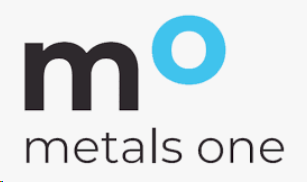Southport
After a shocking week, it seems churlish to talk about the stock market. Any parent, as I am myself, will feel horror at the events in Southport, and then the wider reaction. What perhaps has not been said in the media overload, is that there should be an investigation into the causes of such crime, which seem to be becoming more frequent. That said, one suspects a public inquiry, or similar, will not be forthcoming.
Labour
In the immediate aftermath of the Labour victory on July 4, I spoke with many Conservatives licking their wounds, and resigning themselves to 5 years or more in the wilderness. However, I did not see things that way. I have been into politics since the February 1974 General Election, and the country then was essentially ungovernable. It stayed that way for much of the following decade until the end of the Miners Strike. We are like the 1970s once again. People have been on edge since the pandemic, both financially, and with relation to politics. Therefore, whether it is Boris Johnson, Liz Truss, Rishi Sunak or Keir Starmer, political authority, democracy and the rule of law are all at a low point. I said a month ago that Keir Starmer and friends would be lucky to last a year. The reaction to Southport, the winter fuel payment, the VAT on school fees, are all Labour shooting itself in the foot. And it has only just started. Yes, a change was needed. But people may find that the only thing worse than a Conservative government, is a Labour one.
A US Collapse
Weak jobs data, and a delay to the Fed cutting interest rates, were the erstwhile reasons for the stock market decline at the end of the week. The situation was not helped by an escalation in the Middle East. Part of this correction is clearly the time of year, as traders and investors head off to the beach. We may be looking at another year where the markets need an autumn sell off. This is especially the case as stock markets historically rally in anticipation of interest rate cuts, but fall as they are actually carried out. The fear in the market is that the Fed has left it too late to avoid a recession even with rate cuts.
Georgina Energy
Given that so many small caps are leaving the UK stock market and / or have not been able to get their audit away in time, and get suspended, any company actually joining the market is a stand out. I have mentioned Georgina Energy (GEX) several times in recent weeks, having met the company several times since it first tried to list just before the pandemic. The management have certainly been around the block, and the delay in listing has worked in the company’s favour, both in terms of helium and hydrogen having their time in the sun, and also it moving along its milestones. The money invested into its Australian projects as a private company, means that now as a listed company there is less cash for shareholders to stump up, and it is far nearer to production than many analogous companies. The prospect now is that it will become a leading producer, and that the 124p P50 risked valuation produced by Oak Securities this week is a number to shoot for. Indeed, it would appear that investors are already shooting for it. GEX came to market on Tuesday at 12.5p. It closed the week at 18.4p, quite a result, especially in current stock market conditions.
Rome Resources
Speaking of Oak Securities, which currently seems to be single handedly trying to re-populate the London stock market, another of its deals, Rome Resources (RMR) made it to the Sunday Times this weekend. It listed on AIM via a RTO with Pathfinder Minerals just a few days before GEX, and already seems to be gathering some decent limelight of its own. CEO Paul Barrett said in the paper that the rationale behind listing in London is that investors here are prepared to back African projects and African risk. Just as important is that the company is mobilising rigs at its North Bisie in DRC, and news on the commencement of drilling at its high grade tin assets is imminent.
UK Oil & Gas
Speaking of hydrogen, the element was certainly in focus this week with regard to UK Oil & Gas. Here the shares have already been up nearly 4x over recent weeks. This rise was finessed by the announcement that its strategic Dorset and Yorkshire underground hydrogen storage projects have received a further key letter of support from RWE. Given the farce that is the net zero Labour energy policy, we shall need all the energy storage we can get. UKOG now being debt free means that it looks as though it is finally safe to come out for the bulls.
Metals One
Finally, while the above stocks have all been in the cross hairs of the bulls, it would appear that more investors need to become aware of Metals One (MET1). I interviewed CEO Jonathan Owen once again this week, and the story looks to be firming up. The company terminated the Gunsynd farm-in in May, doubled the resource estimate at Black Schist, and announced the commencement of drilling at Råna Ni-Cu-Co Project, Norway for later this month. All of this should be more than enough to lift the market cap of the company up from £2.6m as the autumn kicks in.
Author
